Tag Archive for: African American studies
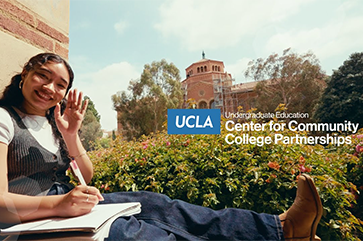 https://www.college.ucla.edu/wp-content/uploads/2025/06/CCP-commencement-363-241.png
241
363
Alvaro Castillo
https://www.college.ucla.edu/wp-content/uploads/2019/07/Uxd_Blk_College-e1557344896161.png
Alvaro Castillo2025-06-10 08:31:392025-06-11 08:32:58Celebrating four graduating Center for Community College Partnerships peer advisors
https://www.college.ucla.edu/wp-content/uploads/2025/06/CCP-commencement-363-241.png
241
363
Alvaro Castillo
https://www.college.ucla.edu/wp-content/uploads/2019/07/Uxd_Blk_College-e1557344896161.png
Alvaro Castillo2025-06-10 08:31:392025-06-11 08:32:58Celebrating four graduating Center for Community College Partnerships peer advisors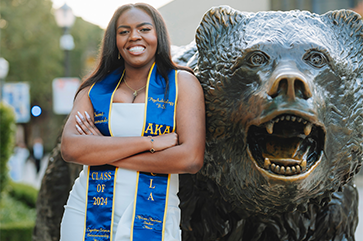 https://www.college.ucla.edu/wp-content/uploads/2024/06/naomi1-363-241.jpg.png
241
363
Alvaro Castillo
https://www.college.ucla.edu/wp-content/uploads/2019/07/Uxd_Blk_College-e1557344896161.png
Alvaro Castillo2024-06-10 14:20:012024-06-10 14:22:52Some of USAC President Naomi Hammonds’ most important contributions at UCLA might not be seen — but they can be felt
https://www.college.ucla.edu/wp-content/uploads/2024/06/naomi1-363-241.jpg.png
241
363
Alvaro Castillo
https://www.college.ucla.edu/wp-content/uploads/2019/07/Uxd_Blk_College-e1557344896161.png
Alvaro Castillo2024-06-10 14:20:012024-06-10 14:22:52Some of USAC President Naomi Hammonds’ most important contributions at UCLA might not be seen — but they can be felt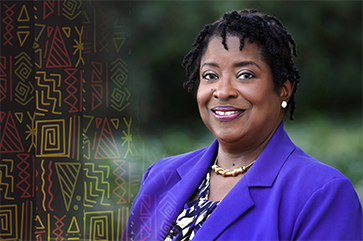 https://www.college.ucla.edu/wp-content/uploads/2024/06/CherylKeyes-363-241.png
241
363
Alvaro Castillo
https://www.college.ucla.edu/wp-content/uploads/2019/07/Uxd_Blk_College-e1557344896161.png
Alvaro Castillo2024-06-03 15:31:462024-06-03 15:32:38Honoring Juneteenth with art, education and community-building
https://www.college.ucla.edu/wp-content/uploads/2024/06/CherylKeyes-363-241.png
241
363
Alvaro Castillo
https://www.college.ucla.edu/wp-content/uploads/2019/07/Uxd_Blk_College-e1557344896161.png
Alvaro Castillo2024-06-03 15:31:462024-06-03 15:32:38Honoring Juneteenth with art, education and community-building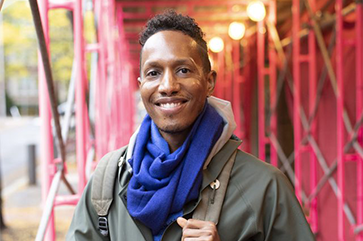 https://www.college.ucla.edu/wp-content/uploads/2024/02/Uri-McMillan-UCLA-portrait-363-241.png
241
363
Alvaro Castillo
https://www.college.ucla.edu/wp-content/uploads/2019/07/Uxd_Blk_College-e1557344896161.png
Alvaro Castillo2024-02-08 11:10:522024-02-20 10:30:10Uri McMillan receives Warhol Foundation grant for book on influential 1970s artists
https://www.college.ucla.edu/wp-content/uploads/2024/02/Uri-McMillan-UCLA-portrait-363-241.png
241
363
Alvaro Castillo
https://www.college.ucla.edu/wp-content/uploads/2019/07/Uxd_Blk_College-e1557344896161.png
Alvaro Castillo2024-02-08 11:10:522024-02-20 10:30:10Uri McMillan receives Warhol Foundation grant for book on influential 1970s artists https://www.college.ucla.edu/wp-content/uploads/2023/11/snwag-363-241.png
241
363
Alvaro Castillo
https://www.college.ucla.edu/wp-content/uploads/2019/07/Uxd_Blk_College-e1557344896161.png
Alvaro Castillo2023-11-21 16:55:082023-11-28 16:55:57Nov. 28: ‘Sudan update: Understanding the war in broader historical and transnational context’
https://www.college.ucla.edu/wp-content/uploads/2023/11/snwag-363-241.png
241
363
Alvaro Castillo
https://www.college.ucla.edu/wp-content/uploads/2019/07/Uxd_Blk_College-e1557344896161.png
Alvaro Castillo2023-11-21 16:55:082023-11-28 16:55:57Nov. 28: ‘Sudan update: Understanding the war in broader historical and transnational context’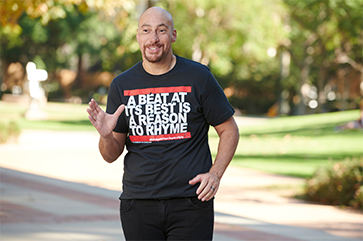 https://www.college.ucla.edu/wp-content/uploads/2023/10/AdamBradley-363-241.png
241
363
Alvaro Castillo
https://www.college.ucla.edu/wp-content/uploads/2019/07/Uxd_Blk_College-e1557344896161.png
Alvaro Castillo2023-10-04 11:31:172023-10-05 13:29:11Adam Bradley co-curates Grammy exhibit celebrating 50 years of hip hop
https://www.college.ucla.edu/wp-content/uploads/2023/10/AdamBradley-363-241.png
241
363
Alvaro Castillo
https://www.college.ucla.edu/wp-content/uploads/2019/07/Uxd_Blk_College-e1557344896161.png
Alvaro Castillo2023-10-04 11:31:172023-10-05 13:29:11Adam Bradley co-curates Grammy exhibit celebrating 50 years of hip hop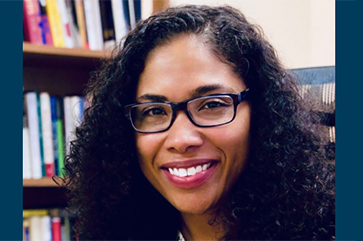 https://www.college.ucla.edu/wp-content/uploads/2023/08/labor-363-241.png
241
363
Alvaro Castillo
https://www.college.ucla.edu/wp-content/uploads/2019/07/Uxd_Blk_College-e1557344896161.png
Alvaro Castillo2023-08-23 16:37:312023-08-28 09:06:21Lorrie Frasure named new director of Bunche Center
https://www.college.ucla.edu/wp-content/uploads/2023/08/labor-363-241.png
241
363
Alvaro Castillo
https://www.college.ucla.edu/wp-content/uploads/2019/07/Uxd_Blk_College-e1557344896161.png
Alvaro Castillo2023-08-23 16:37:312023-08-28 09:06:21Lorrie Frasure named new director of Bunche Center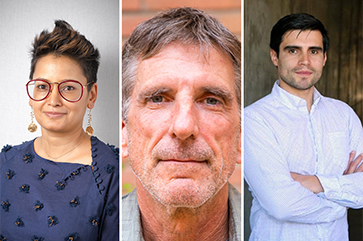
College marshals honored at UCLA College commencement
UCLA College marshals Yogita Goyal, Stuart Brown and Jose Rodriguez.
UCLA…
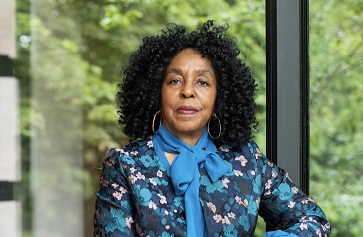
UCLA’s Brenda Stevenson on reclaiming the history of the Black family
The historian and author discusses her new book, ‘What Sorrows…
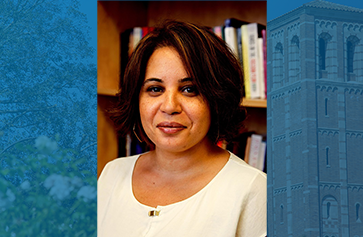
Sarah Haley receives Marguerite Casey Foundation Freedom Scholars Award
UCLA Newsroom | January 24, 2023
Sarah Haley, an associate…

